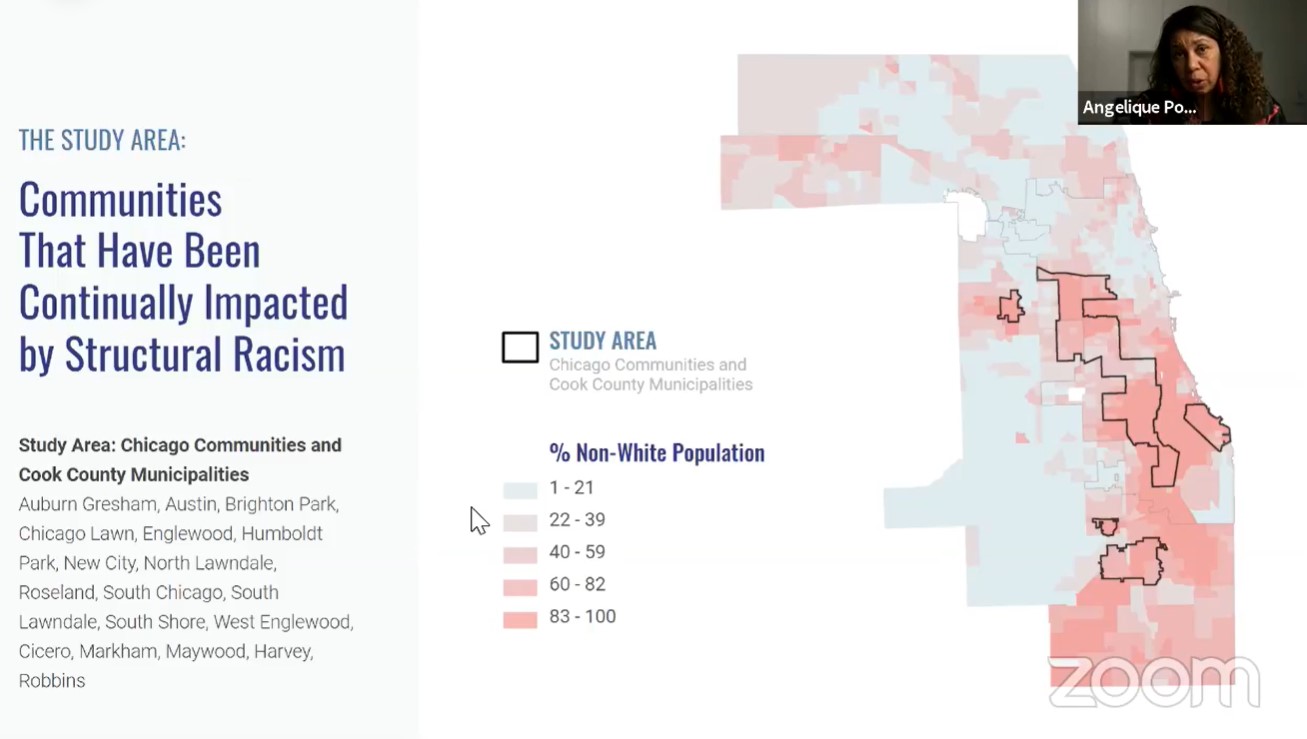
26 Apr Mapping COVID-19’s Racialized Impact
Share This ArticleAs COVID-19 wreaked havoc in our region last year, it was clear that the impact on BILPOC communities would be devastating. How and why did this happen? Last summer, a group of 20 local foundations, including Healthy Communities Foundation, and other cross-sector partners came together to form the Mapping COVID-19 Recovery Project. The group created geographic maps of the Chicagoland area that examine the intersection of institutional in(dis)vestment, inequitable policies, and the health and social conditions that enabled COVID-19’s disastrous harm. This project aims to use tools like data and maps to help make sense of COVID-19’s racialized impact and encourage organizations from all sectors to rethink existing systems and rebuild more robust, equitable communities in the Chicagoland area.
Last month, the group launched the Mapping COVID-19 Recovery website where anyone can view and download these maps for their own use and purpose.
On the website, visitors will find a set of maps of Chicago and the Cook County suburbs with several data overlays that examined the impact of longstanding inequitable housing policies, over-policing, and lack of municipal and philanthropic investment in Black and Latinx communities. From these maps, one can see just how COVID-19 deepened health, social and economic inequities. While maps and data do not tell us the whole story, the Mapping COVID-19 Recovery Project team hopes this inspires organizations to use a racial/ethnic lens to their data and processes to spur systemic change. The group also encourages the creation of new maps to help in advocacy and policy change.
We are proud to partner with fellow funders, researchers, and leaders on this project. We know that if we don’t learn from history, we have no hope of rectifying it.
You can also view a recent Facebook Live conversation hosted by the Chicago Chapter of the National Association of Black Journalists (NABJ). The discussion was moderated by Maudlyne Ihejirika, Chicago Sun-Times columnist and NABJ-Chicago Chapter President. Panelists included our President Maria Pesqueira, Angelique Power, President of The Field Foundation of Illinois, and Dan Cooper, Director of Research at The Metropolitan Planning Council.
Read WBEZ’s coverage on the event and of the critical role these maps can have as we work towards recovery in our region.

No Comments